Count and Noncount Nouns: Basic Rules
Adjectives with Countable and Uncountable Nouns
The Basic Rules: Count and Noncount Nouns
A count noun is one that can be expressed in plural form, usually with an "s." For example, "cat—cats," "season—seasons," "student—students."
A noncount noun is one that usually cannot be expressed in a plural form. For example, "milk," "water," "air," "money," "food." Usually, you can't say, "He had many moneys."
Count and Noncount Nouns with Adjectives
Most of the time, this doesn't matter with adjectives. For example, you can say, "The cat was gray" or "The air was gray." However, the difference between a countable and uncountable noun does matter with certain adjectives, such as "some/any," "much/many," and "little/few."
Some/Any: Some and any countable and uncountable nouns.
• "There is some water on the floor."
• "There are some students here."
• "Do you have any food?"
• "Do you have any apples?"
Much/Many: Much modifies only uncountable nouns. Many modifies only countable nouns.
• "We don't have much time to get this done."
• "Many Americans travel to Europe."
Little/Few: Little modifies only uncountable nouns.
• "He had little food in the house."
• "The doctor had little time to think in the emergency room."
Few modifies only countable nouns.
• "There are few doctors in town."
• "Few students like exams."
Other basic rules
A lot of/lots of: A lot of/lots of are informal substitutes for much and many. They are used with uncountable nouns when they mean much and with countable nouns when they mean many.
• "They have lots of (much) money in the bank."
• "A lot of (many) Americans travel to Europe."
• "We got lots of (many) mosquitoes last summer."
• "We got lots of (much) rain last summer."
A little bit of: A little bit of is informal and always precedes an uncountable noun.
• "There is a little bit of pepper in the soup."
• "There is a little bit of snow on the ground."
Enough: Enough modifies both countable and uncountable nouns.
• "There is enough money to buy a car."
• "I have enough books to read."
Plenty of: Plenty of modifies both countable and uncountable nouns.
• "They have plenty of money in the bank."
• "There are plenty of millionaires in Switzerland."
No: No modifies both countable and uncountable nouns.
• "There is no time to finish now."
• "There are no squirrels in the park."リス
Count and Noncount Nouns (with Plurals, Articles, and Quantity Words)
Section 1: Definition of Count and Noncount nouns
Count or Noncount?
The main difference between count and noncount nouns is whether you can count the things they refer to or not.
Count nouns refer to things that exist as separate and distinct individual units. They usually refer to what can be perceived by the senses.
Examples:
• table
• finger
• bottle
• chair
• remark
• award
• word
• girl
• candidate
Example sentences:
I stepped in a puddle. (How many puddles did you step in? Just one.)
I drank a glass of milk. (Glasses of milk can be counted)
I saw an apple tree. (Apple trees can be counted)
Noncount nouns refer to things that can't be counted because they are thought of as wholes that can't be cut into parts. They often refer to abstractions and occasionally have a collective meaning (for example, furniture).
Examples:
• anger
• courage
• progress
• furniture
• education
• weather
• warmth
• leisure
• precision
Example sentences:
I dove into the water. (How many waters did you dive into? The question doesn't make any sense; therefore water is noncountable.)
I saw the milk spill. (How many milks? Milk cannot be counted.)
I admired the foliage. (How many foliages? Foliage cannot be counted.)
Think of the batter from which a cake is made. Before you put the batter into the oven, it can't be divided into parts because it's a thick liquid. Once it has been baked, it becomes solid enough to be cut into pieces. Noncount nouns are like cake batter; count nouns are like pieces of cake
Note: Since the issue is complicated and almost no rule is absolute, there will be exceptions to the above definitions; however, we can show some general patterns. Bear in mind that what is countable in another language may not be countable in English, and vice versa.
Section 2: Uses of Count and Noncount Nouns
Pluralizing
The Rule
From the definitions of mass and count given above you may have already guessed the rule for pluralizing them:
• most count nouns pluralize with -s
• noncount nouns don't pluralize at all
This rule works for all of the nouns in the lists of examples in the first section. Check this rule for yourself before reading further.
An Exception to the Rule
For a number of nouns, the rule needs slight revision. Certain nouns in English belong to both classes: they have both a noncount and a count meaning. Normally the noncount meaning is abstract and general and the count meaning concrete and specific. Compare:
Count
• I've had some difficulties finding a job. (refers to a number of specific problems)
• The talks will take place in the Krannert building. (refers to a number of specific lectures)
• The city was filled with bright lights and harsh sounds. (refers to a number of specific lights and noises)
Noncount
• She succeeded in school with little difficulty. (refers to the general idea of school being difficult)
• I dislike idle talk. (refers to talking in general)
• Light travels faster than sound. (refers to the way light and sound behave in general)
Note: A special case of the use of noncount nouns in a count sense has to do with classification. Sometimes a usually noncount noun can be understood as one item separate and distinct from other items of the same category. The nouns that function in this way often denote foods and beverages: food(s), drink(s), wine(s), bread(s), coffee(s), fruit(s), and so on. Examples:
• There are several French wines to choose from. (= kinds of wine)
• I prefer Sumatran coffees to Colombian. (= kinds of coffee)
• We use a variety of different batters in our bakery. (= kinds of batter)
A recent entry into this class is homework, which at least among some students has the count plural homeworks in addition to its noncount use. (For example, "You're missing three of the homeworks from the first part of the course.") Because this usage is not firmly established and is likely to be considered nonstandard, you should check with your instructor before using it in writing.
Adjectives with Countable and Uncountable Nouns
The Basic Rules: Count and Noncount Nouns
A count noun is one that can be expressed in plural form, usually with an "s." For example, "cat—cats," "season—seasons," "student—students."
A noncount noun is one that usually cannot be expressed in a plural form. For example, "milk," "water," "air," "money," "food." Usually, you can't say, "He had many moneys."
Count and Noncount Nouns with Adjectives
Most of the time, this doesn't matter with adjectives. For example, you can say, "The cat was gray" or "The air was gray." However, the difference between a countable and uncountable noun does matter with certain adjectives, such as "some/any," "much/many," and "little/few."
Some/Any: Some and any countable and uncountable nouns.
• "There is some water on the floor."
• "There are some students here."
• "Do you have any food?"
• "Do you have any apples?"
Much/Many: Much modifies only uncountable nouns. Many modifies only countable nouns.
• "We don't have much time to get this done."
• "Many Americans travel to Europe."
Little/Few: Little modifies only uncountable nouns.
• "He had little food in the house."
• "The doctor had little time to think in the emergency room."
Few modifies only countable nouns.
• "There are few doctors in town."
• "Few students like exams."
Other basic rules
A lot of/lots of: A lot of/lots of are informal substitutes for much and many. They are used with uncountable nouns when they mean much and with countable nouns when they mean many.
• "They have lots of (much) money in the bank."
• "A lot of (many) Americans travel to Europe."
• "We got lots of (many) mosquitoes last summer."
• "We got lots of (much) rain last summer."
A little bit of: A little bit of is informal and always precedes an uncountable noun.
• "There is a little bit of pepper in the soup."
• "There is a little bit of snow on the ground."
Enough: Enough modifies both countable and uncountable nouns.
• "There is enough money to buy a car."
• "I have enough books to read."
Plenty of: Plenty of modifies both countable and uncountable nouns.
• "They have plenty of money in the bank."
• "There are plenty of millionaires in Switzerland."
No: No modifies both countable and uncountable nouns.
• "There is no time to finish now."
• "There are no squirrels in the park."リス
Count and Noncount Nouns (with Plurals, Articles, and Quantity Words)
Section 1: Definition of Count and Noncount nouns
Count or Noncount?
The main difference between count and noncount nouns is whether you can count the things they refer to or not.
Count nouns refer to things that exist as separate and distinct individual units. They usually refer to what can be perceived by the senses.
Examples:
• table
• finger
• bottle
• chair
• remark
• award
• word
• girl
• candidate
Example sentences:
I stepped in a puddle. (How many puddles did you step in? Just one.)
I drank a glass of milk. (Glasses of milk can be counted)
I saw an apple tree. (Apple trees can be counted)
Noncount nouns refer to things that can't be counted because they are thought of as wholes that can't be cut into parts. They often refer to abstractions and occasionally have a collective meaning (for example, furniture).
Examples:
• anger
• courage
• progress
• furniture
• education
• weather
• warmth
• leisure
• precision
Example sentences:
I dove into the water. (How many waters did you dive into? The question doesn't make any sense; therefore water is noncountable.)
I saw the milk spill. (How many milks? Milk cannot be counted.)
I admired the foliage. (How many foliages? Foliage cannot be counted.)
Think of the batter from which a cake is made. Before you put the batter into the oven, it can't be divided into parts because it's a thick liquid. Once it has been baked, it becomes solid enough to be cut into pieces. Noncount nouns are like cake batter; count nouns are like pieces of cake
Note: Since the issue is complicated and almost no rule is absolute, there will be exceptions to the above definitions; however, we can show some general patterns. Bear in mind that what is countable in another language may not be countable in English, and vice versa.
Section 2: Uses of Count and Noncount Nouns
Pluralizing
The Rule
From the definitions of mass and count given above you may have already guessed the rule for pluralizing them:
• most count nouns pluralize with -s
• noncount nouns don't pluralize at all
This rule works for all of the nouns in the lists of examples in the first section. Check this rule for yourself before reading further.
An Exception to the Rule
For a number of nouns, the rule needs slight revision. Certain nouns in English belong to both classes: they have both a noncount and a count meaning. Normally the noncount meaning is abstract and general and the count meaning concrete and specific. Compare:
Count
• I've had some difficulties finding a job. (refers to a number of specific problems)
• The talks will take place in the Krannert building. (refers to a number of specific lectures)
• The city was filled with bright lights and harsh sounds. (refers to a number of specific lights and noises)
Noncount
• She succeeded in school with little difficulty. (refers to the general idea of school being difficult)
• I dislike idle talk. (refers to talking in general)
• Light travels faster than sound. (refers to the way light and sound behave in general)
Note: A special case of the use of noncount nouns in a count sense has to do with classification. Sometimes a usually noncount noun can be understood as one item separate and distinct from other items of the same category. The nouns that function in this way often denote foods and beverages: food(s), drink(s), wine(s), bread(s), coffee(s), fruit(s), and so on. Examples:
• There are several French wines to choose from. (= kinds of wine)
• I prefer Sumatran coffees to Colombian. (= kinds of coffee)
• We use a variety of different batters in our bakery. (= kinds of batter)
A recent entry into this class is homework, which at least among some students has the count plural homeworks in addition to its noncount use. (For example, "You're missing three of the homeworks from the first part of the course.") Because this usage is not firmly established and is likely to be considered nonstandard, you should check with your instructor before using it in writing.










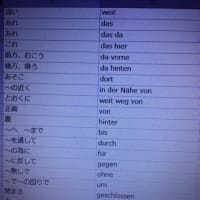
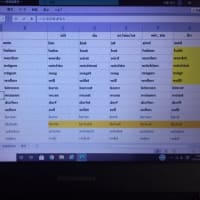
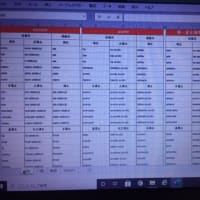
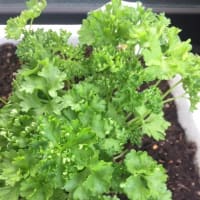
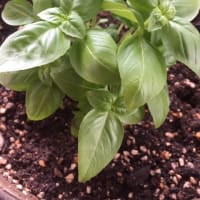
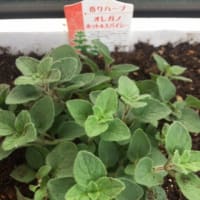
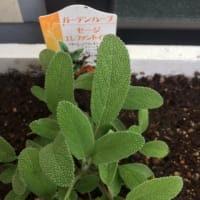

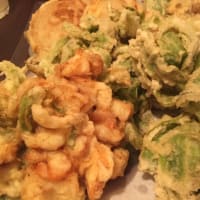
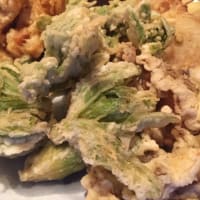
※コメント投稿者のブログIDはブログ作成者のみに通知されます